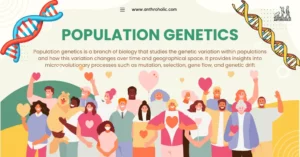AI Answer Evaluation Platform Live Now. Try Free Answer Evaluation Now
How Societies Have Nurtured Newborns Through the Centuries
The way humans have cared for their newborns tells a deeper story about culture, survival, and adaptation. In early human societies, infant care was deeply tied to community living. The survival of the newborn was not just a personal concern but a shared social goal.

Before written records, care practices were passed down through oral traditions. Feeding involved breastfeeding on demand, often lasting for several years. This practice provided not only nutrition but also immunity and emotional comfort.
Infants were wrapped in animal skins, carried close to the body, and constantly kept within sight and touch. These practices shaped the strong attachment patterns still studied by anthropologists today.
Changing Notions of Care and Cleanliness
As human settlements expanded and agriculture developed, infant care practices began to reflect social hierarchy, gender norms, and ideas of purity. In ancient civilizations such as Egypt and Greece, wet nurses were common among the wealthy, while poorer families depended solely on the mother’s care.
By the medieval period, religious and moral beliefs began to influence how infants were viewed. Some societies saw newborns as needing spiritual cleansing, leading to early baptism or purification rituals.
Others viewed them as vulnerable beings requiring protection from evil spirits. The methods of care, from swaddling to feeding schedules, were shaped by these wider beliefs about morality, the body, and the soul.
The age of the mother during childbirth also impacted newborn care. As noted in a study published in the Wiley Online Library, ancient women typically procreated for 14 to 21 years. They began childbearing after marriage, typically around 15 years of age, and had an average of 6-8 children. All these factors impacted the amount of childcare required. But despite that, many children didn’t live a long life.
How did ancient ideas about cleanliness affect newborn care?
Cleanliness often carried both physical and moral meanings. In ancient societies, infants were bathed with herbs or oils believed to strengthen both the spirit and the body. These practices weren’t only about hygiene but about aligning the child with spiritual or social ideals of purity and protection.
The Transformation of Feeding Practices
Feeding has always been at the heart of how societies nurture newborns. For much of human history, breastfeeding was the universal method of nourishment. It carried not only biological importance but also social and emotional meaning.
The industrial era brought dramatic changes. As women joined the workforce and urban life expanded, breastfeeding began to decline sharply. According to a study from the Journal of Nutrition, only 22% of women breastfed in 1972. However, it began to increase again from 1975, when it was 33.4%.
This also led to many companies introducing manufactured infant formula as a convenient alternative, promoting it as modern and scientifically advanced. However, the growing reliance on formula food also reveals medical and ethical concerns. As noted by TorHoerman Law, some baby formulas are linked to Necrotizing Enterocolitis (NEC). It is a life-threatening condition usually diagnosed in premature infants.
Many parents of children who developed the condition have filed NEC lawsuits for their damages. However, breastfeeding has made a steady comeback in recent years. This renewed appreciation represents more than a return to biology. It reflects a deeper cultural shift toward valuing closeness, sustainability, and ancestral knowledge in modern parenting.
The Role of Community in Infant Survival
In many traditional societies, infant care was never an isolated task. An NCBI study notes that caregiving was distributed among several adults in hunter-gatherer groups, such as the Agta and BaYaka. This shared responsibility ensured that infants received near-constant attention and physical contact.
Even today, in rural or tribal settings, alloparenting, where grandparents, siblings, or community members help raise children, remains common. Such collective systems highlight how human evolution favored cooperation as a survival strategy for newborns.
These alloparenting efforts were not just meaningful, but also necessary. Despite all the care and efforts, both mothers and newborns suffered due to a lack of technology and medication.
An article from The Conversation notes that it was common for mothers to have 5-6 children. However, 40% of the infants didn’t survive until the marriageable age. Data also hints that at some point, around 30% of mothers died during childbirth.
With modernization, this communal network has often weakened. Nuclear families and urban living have reduced access to extended family support, placing greater pressure on individual parents. Yet, online communities and parent support groups are beginning to fill part of this gap, offering new forms of shared learning and emotional care.
Are there examples of societies that still rely on collective infant care?
Yes. Groups such as the Hadza in Tanzania or the Efe in the Congo Basin continue to practice communal caregiving. Infants are held, fed, and soothed by multiple adults each day. This shared approach builds secure attachments and reflects an ancient survival mechanism rooted in cooperation.
Rituals, Beliefs, and Symbolism in Infant Care
Rituals surrounding birth and infancy provide insight into how societies attach meaning to new life. In parts of Africa and South Asia, newborns are introduced to the community through ceremonies that blend spirituality and social identity. These rituals have also changed over time.
Consider the example of the miyamairi ceremony in Japan. According to Japan Up Close, the ceremony marks a child’s first visit to a shrine. Traditionally, it was performed to seek blessings from a local deity. It also marked the end of mourning related to childbirth, now called postpartum depression.
However, a child’s first visit to the shrine is now celebrated. It is used as a way to express gratitude for safe delivery and to pray for the child’s healthy growth. Similar customs can be found in Latin America and Indigenous communities worldwide.
These rituals do more than express faith; they shape emotional bonds between families and communities. They also reinforce values about purity, protection, and the transition from birth to social recognition. Even in modern hospitals, practices like naming ceremonies and first birthdays continue to serve as symbolic rites of passage.
Why are naming rituals important in infant care?
Naming ceremonies often signify a child’s acceptance into the community. In many cultures, a baby isn’t considered fully human until named, linking identity to social belonging. These rituals serve psychological and social purposes, affirming the parents’ roles and the child’s place within collective memory.
Today, global communication and medical exchange have created a unique mix of ideas about infant care. Hospitals in one country may borrow techniques from indigenous cultures in another. Midwives and doctors work together to offer both clinical safety and emotional support.
Anthropology helps us understand that care is not just a biological process; it’s a cultural statement about how societies value life. From ancient rituals to neonatal intensive care units, the story of nurturing newborns is ultimately a story about what it means to be human. Every society, in its own way, continues to shape the earliest chapter of life with love, learning, and evolving responsibility.



